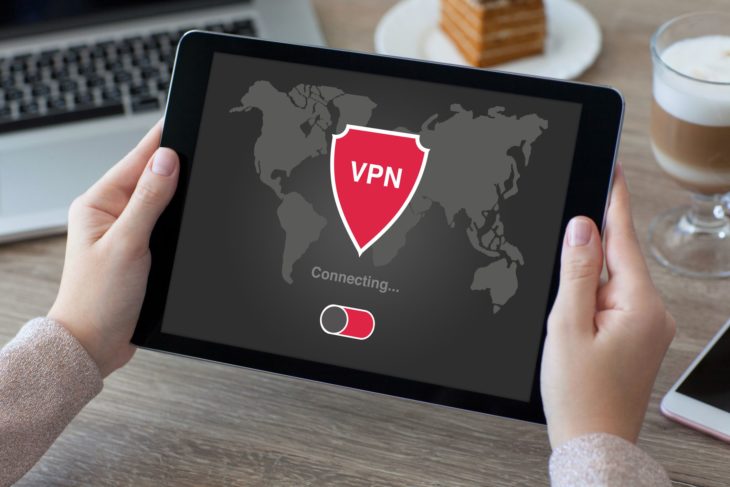When COVID19 started wreaking havoc across the globe, governments scrambled to curb its spread by implementing strict measures such as lockdowns and social distancing. Businesses were faced with two choices; shut down their operations, or continue working. In the latter, they had to resort to remote working, a concept naive to many new small businesses.
Facebook, Google, Microsoft, IBM, LinkedIn, and Twitter are among the most notable tech companies that in line with a possible second wave of COVID19, have advised their entire staff to keep working from home for an indefinite period of time.
Would offices ever open? Will everything go back to normal? Or is this the new normal? We don’t know yet. It’s been 10 months of COVID19 wreaking havoc across the world and what we’ve observed so far is a skyrocketing trend of remote working. We strongly believe that remote work is here to stay. What needs to be done is getting adjusted with it.
But with sudden shifts in business policies where employees had to no more take care of their dressing and consider their rooms as offices, little was done to spread education on cybersecurity. It just wasn’t possible for businesses and employees to cope up with rising cybersecurity risks as they moved from a secure office-based environment to a weak home-based remote environment.
One ill-informed or careless action of an employee can easily bring down the entire operations of business to a complete halt!
We share some important remote working cybersecurity tips for employee and employers in this article:

Source: irishmirror
Contents
1. Use secure WiFi connection
Use a secure WiFi connection by ensuring it is strongly password-protected. Other than this, only use trusted sources. What better way to start your day than having a hot cup of cappuccino, and a donut at a nearby cafe? But as cybersecurity experts say. cafes, restaurants, and public WiFI hotspots are a perfect recipe for disaster. They are not safe and can be set up by a hacker who wants to snoop your traffic, and steal your credentials.
2. Use official devices
While there’s no harm in using your personal laptop or desktop computer for doing remote work, it is companies’ responsibility to provide laptops, and devices with a strong level of encryption and updated security apps. When employees use their personal devices for work, they are increasing their risks of a network breach.

Source: entrepreneur
3. Use strong passwords with 2 Factor Authentication
Realistically, “Myname123” shouldn’t be your password. Use strong passwords like “MyN@mezJ0Hn1&&$$”. If it is hard for you to remember, it will be hard for hackers to crack. As such, use a password manager or rely on a good old-fashioned method of writing it down on a piece of paper!
We won’t recommend going with a password manager. What if it gets hacked and all your important passwords are leaked?
4. You don’t need more information on COVID19
Seriously, you really do not need any more information on COVID19 including symptoms, medicines, vaccines, etc. Any email that encourages you to click on a link to download a Word file containing important information about COVID19 is a lie. This email needs to be deleted and the sender blocked immediately.
These are all phishing scams where hackers pose to be using your company servers and providing you either with more information on COVID19 or new company policy.
Always look at the sender’s email address. If something seems fishy, it probably is. Always make sure that the sender’s email address contains special characters, or the person who seems to know you doesn’t address with your full name, don’t open the email.

Source: quantumweb
5. Isolate company’s data regularly on external backup disks
Backup your office data regularly and isolate it on an external HD drive, disconnected from your PC. In an unfortunate event of a ransomware attack, this external drive shall remain 100% safe, but will take some time for you to restore your data. Better yet, use cloud software such as Azure, Google and Amazon AWS to backup your data. Cloud service providers come with a range of features including 27/4 anti-virus and firewall protection software.
6. Use a VPN
If you are working as a remote employee for a company, it is your employer’s responsibility to provide you with a VPN. It gives you a much-needed extra layer of security making it difficult for hackers to track your online activities and hack your systems.
Sometimes the best of us really shines out when we work alone in our own spaces. These are the times to be the best of ourselves. It was during 2 years of self-quarantine during the Bubonic Plague when Sir Isaac Newton laid the foundation for calculus, and gravity. Why can’t you be the next Newton?

Source: Lifewire
7. Never use the same passwords on multiple websites
As hard as this may sound, the bitter reality is that you need to use different passwords for every website and/or software. In case you’re compromised, hackers need to do some educated guesswork and utilize the same password with your email address to see if it works. Unfortunately, we as human beings are lazy and procrastinate more than being productive.
Convenience isn’t a friend anymore, but an enemy here. You will need to remember several passwords, but at least it will keep you much safer from hackers as opposed to using a single password.
Final Thoughts
Remote workers are far more vulnerable to companies when it comes to a ransomware attack. BeforeCrypt, a leading German-based data recovery company specializes in making emergency incident response plans for remote workers and companies employing freelancers.
We know how difficult it is to get the same level of network security at home that you’d usually enjoy at your office. We will consult with remote workers and provide a comprehensive and strategic plan to harden the network security.
